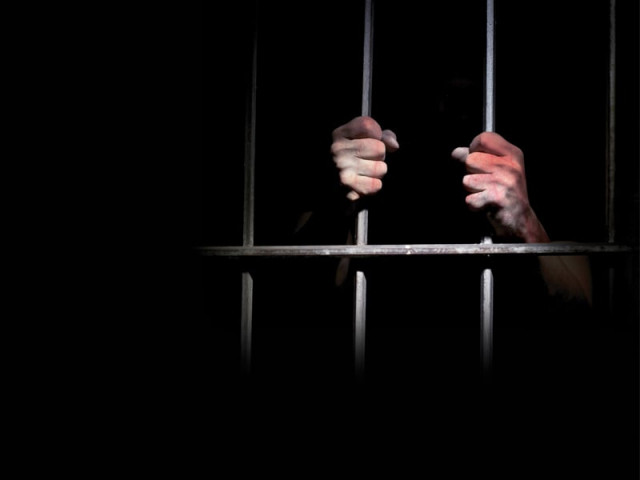Human rights: Govt wakes up to the rising trend of police torture
Police have no right to torture suspects in custody, says Senate committee.

The Punjab police has been instructed to stop torturing suspects in custody after the Senate Functional Committee on Human Rights took note of media reports of an ‘increasing trend of police torture’ in the province, The Express Tribune has learnt.
The committee reaffirmed that police have no legal right to torture suspects at police stations and lockups, according to the minutes of the meeting which were forwarded to the additional IG (Investigation), who in turn sent a circular to the IG for action to curb illegal police practices.
According to the committee’s report, five men were killed and 137 suspects left disabled after police torture in Lahore in 2011 and so far in 2012. Forty-six cases of custodial killings or torture were registered against policemen in 2011.
Most recently, hundreds of residents of a village on the outskirts of Lahore gathered in front of the press club to demand justice after Niamat Ali, a father of seven, was allegedly tortured to death over the course of several days in illegal detention.
The committee’s report said that the discussion on torture stemmed from recent media reports “of cases in which police officers have transgressed the boundaries of human rights and subjected people to torture, sometimes resulting in custodial deaths. This has been portrayed as a trend which is increasing.”
The committee urged the police to revise their investigation methods and concentrate on collecting physical evidence using forensic techniques rather than coercing suspects into making confessions. It also called for improvements in the recruitment and training of police and other law enforcement personnel. “Only incompetent investigation officers believe in torture,” it said.
Why torture?
The committee noted that torture was used not just to extract confessions, but also for purposes of extortion and corruption. It identified a lack of tolerance in society, lack of training in proper investigation techniques and lack of resources as some of the factors behind the widespread use of torture.
The report said that torture could be curbed in the short-term by ensuring that any complaints in this regard were registered and investigated as soon as possible. “The increase in the number of such cases is indicative of the tough approach of senior police officers,” it said, referring to the 46 cases registered against police officials in 2011.
It called for training programmes in modern investigation techniques and noted that the Punjab Forensic Science Laboratory had recently been set up to strengthen evidence collection.
For long-term improvements, said the report, the government “should distance themselves from the routine working of the police department [and] limit themselves to policy matters only.”
It called for the formation of a non-political commission to look into transfers and postings and deal with complaints of police brutality. “A new law may be framed or the subject articles of the Police Order 2002 may be activated,” it said.
Punjab Additional IG (Investigation) Muhammad Aslam Tareen told The Express Tribune that police had already taken steps to curb torture and custodial deaths. “A state-of-the-art forensics lab has been established in Lahore and training courses for investigating officers are being conducted regularly at the district level,” he said.
“In line with the human rights standards enshrined in the Constitution and prevailing in the civilised world, the Punjab police does not tolerate any kind of torture and police brutality,” he said. However, he did not say whether he agreed or disagreed that the use of torture was increasing.
Published in The Express Tribune, January 23rd, 2012.



















COMMENTS
Comments are moderated and generally will be posted if they are on-topic and not abusive.
For more information, please see our Comments FAQ